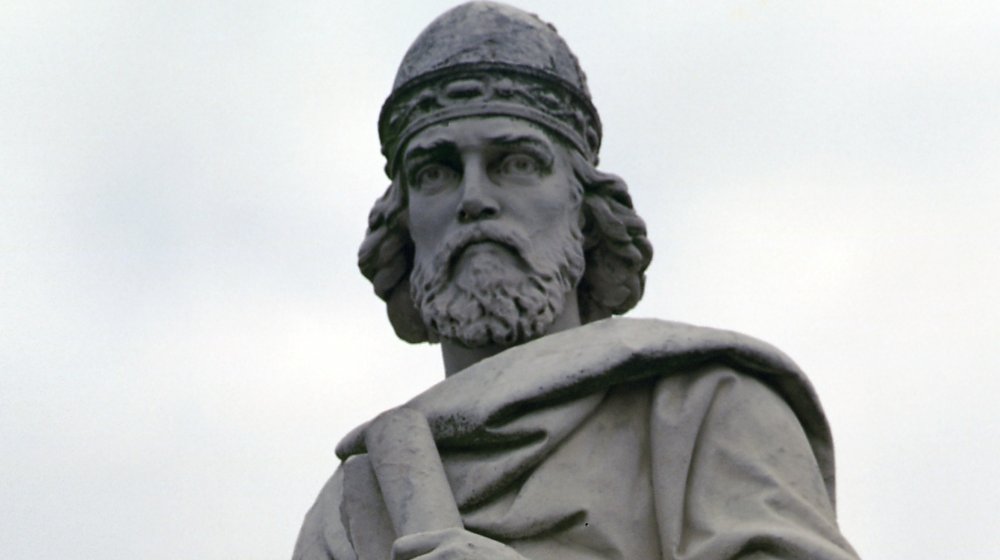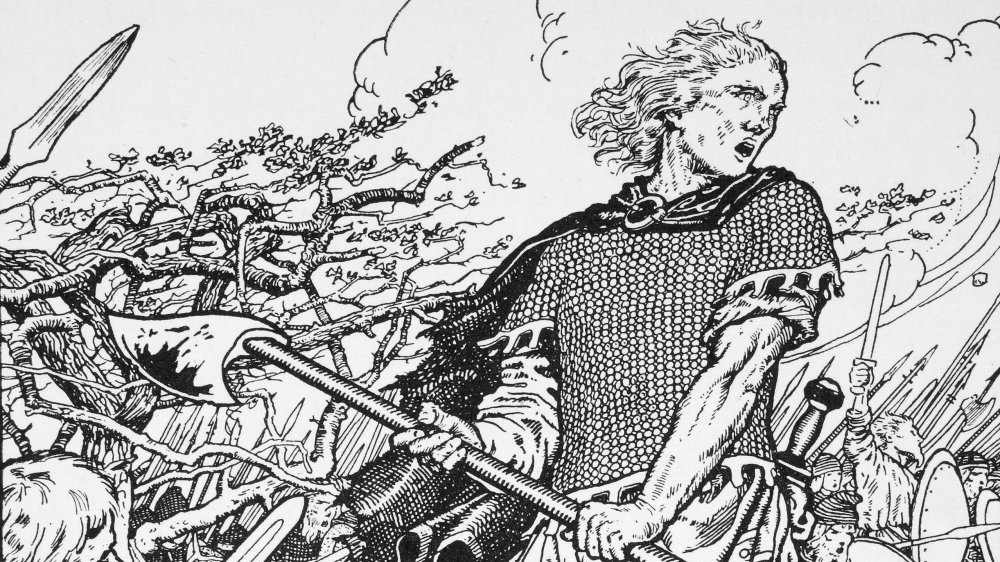The Mysterious Death Of Alfred The Great
Not a lot of people get to be identified forever as great. The Catholic Church has a couple of saints who are so designated; unctuous TV hosts will apply the word to whichever guest is waiting in the wings at that particular moment. (Also "close, personal friend of mine.")
Alfred, king of Wessex (the area south of the Thames River in England — and the Thames is the river that runs through London, so go ahead and check the map), is universally referred to as The Great. And not without good reason. He's the odd sort of king insofar as he doesn't seem to have lusted after the throne. He was born in 849 CE, but the youngest of five children. Three of those older siblings were boys and, hence, potential heirs to power, says the Ancient History Encyclopedia, ahead of Alfred. But death comes for us all eventually, and in Alfred's case, it came for his brothers. In 865 Alfred was named successor to Aethelred and named military commander.
Alfred, despite a reputation for a love of books and desire for learning, proved an able leader, fighting a series of battles with invading Danes and, when he finally defeated them once and (mostly) for all, forebore taking vengeance.
Despite numerous battlefields, Alfred didn't die by the sword
And while that conflict was significant (and, frankly, ongoing), Alfred also became lauded for his commitment to learning. He only mastered literacy later in his life, but in addition to writing and translation work (Latin to Anglo-Saxon) codified his nation's laws, says the BBC. He established the first English navy and was deeply religious as well, credited with facilitating the conversion to Christianity of the Danes who took up peaceful residence in England.
Just because you're king, and roundly lauded as Great, doesn't mean there won't be mysteries around your life and, for that matter, your death. There doesn't seem to be any consensus about what prompted Alfred to join the Choir Invisible. New World Encyclopedia relates that even the king's death date is disputed — October 26, 899, but only probably. "How he died is unknown," we're told. "He had suffered for many years from a painful illness," gastrointestinal in nature, that would sometimes confine him to his rooms for days or even weeks at a time with cramps and diarrhea. Some historians speculate Alfred suffered from Crohn's disease, says History Hit — an "inflammatory bowel disease," says The Mayo Clinic, that's "painful and debilitating" and can lead to malnutrition and even death — perhaps even Alfred's, which would not be so great. But nobody knows for sure.

